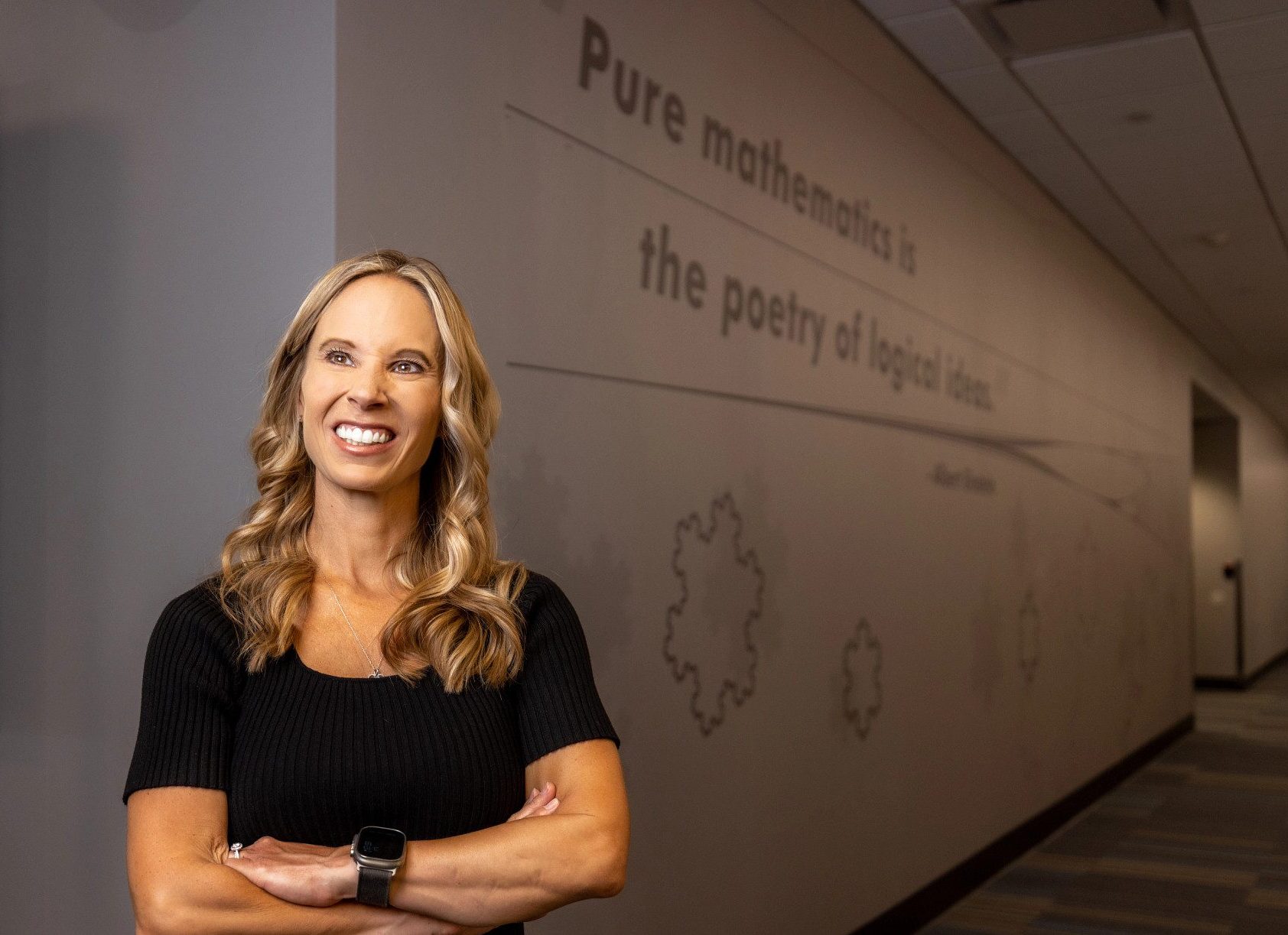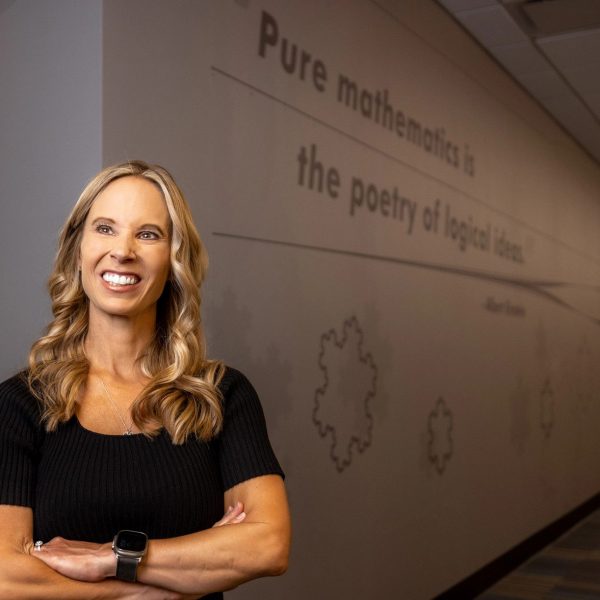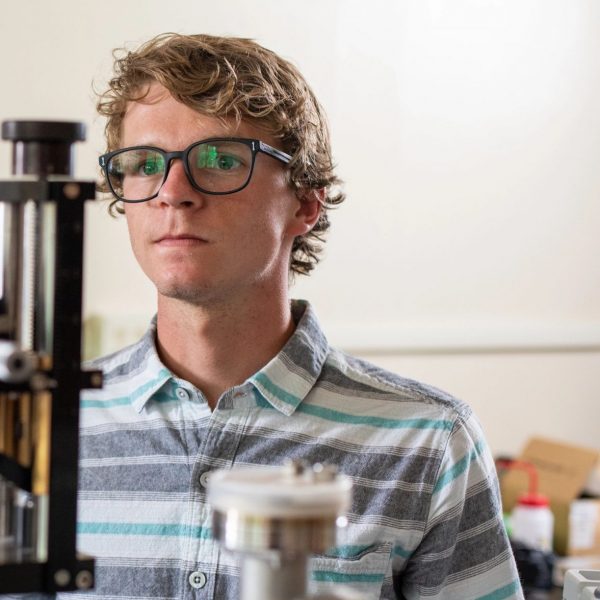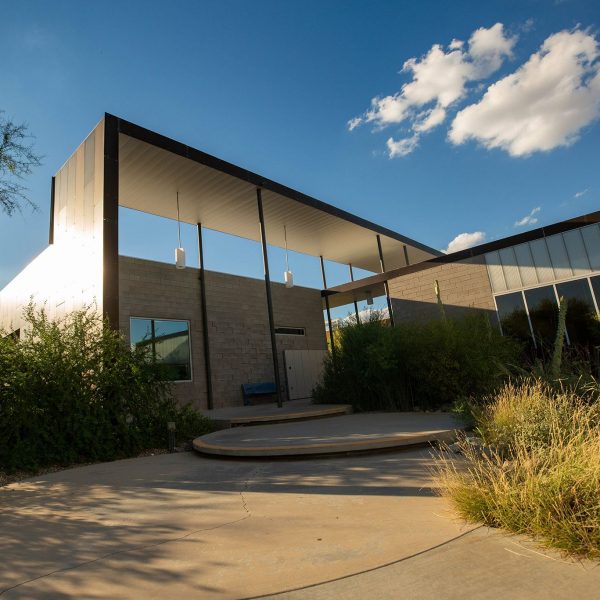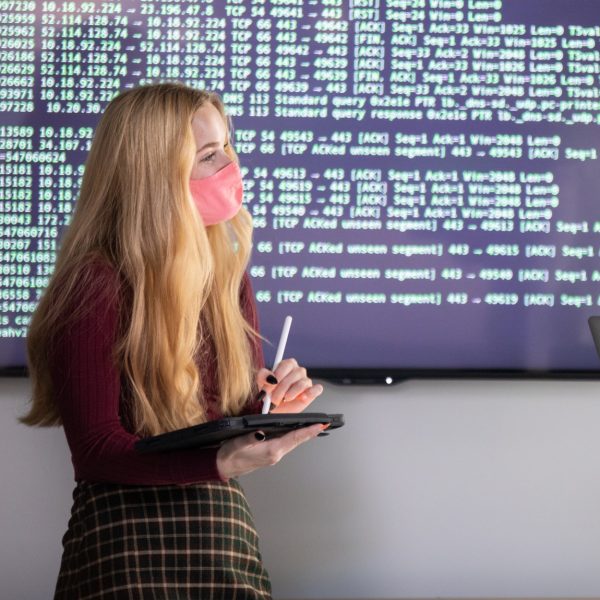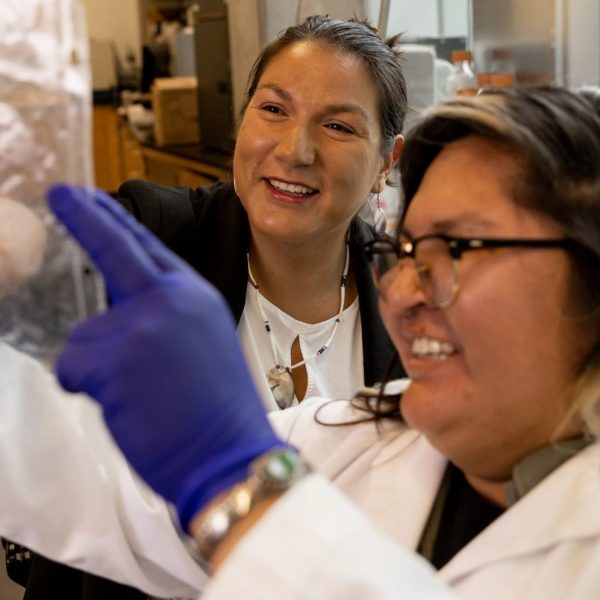Dr. Angie Hodge-Zickerman, Associate Professor with the Department of Mathematics and Statistics, wants people to know, “You can do math.”
This underlies her goal to help women and underrepresented groups succeed in the field of mathematics. She recently received two grants to help her achieve that goal. The Mathematical Association of America (MAA) Tensor grant will fund a conference for women conducting mathematics research in the state of Arizona. The second grant, “Promoting STEM Education Access through Scholarships, Engineering Education Microcredentials, and a Community College Partnership,” is from the National Science Foundation (NSF) and will support both future and current mathematics and science educators. Her passion for helping others in mathematics began with her experiences as she started college.
Finding mathematics mentors
Growing up, Hodge-Zickerman wanted to be a teacher and excelled in mathematics. Her parents encouraged her interests, but since they hadn’t gone to college, she needed to figure things out independently. Hodge-Zickerman turned to her high school mathematics teacher for advice. She asked him whether she should be a high school mathematics teacher or an elementary teacher. He told her she should opt for the elementary school: “You are a female of small stature. You would never have control of your classroom in a high school setting.”
Excited to be starting college, she followed his advice and enrolled as an elementary education student. At the last minute, she added an extra elementary education mathematics course. “My orientation counselor kind of got mad at me. She’s like, ‘You can’t take that. Everybody fails these classes. You’re going to fail your class.’”
But Hodge-Zickerman didn’t fail. She excelled. Serendipitously, the professor of the class was a woman—of small stature. She encouraged Hodge-Zickerman to continue taking mathematics classes, including calculus. Her calculus teacher encouraged her to switch her major to mathematics.
“It took those mentors and people who saw there was a place for me. I did fit in. I can do math,” says Hodge-Zickerman. “One of my research areas has turned into helping people feel that everybody fits into the math world. If you want to be there, there’s a space for you. And then, finding people who want to be teachers to spread that love of math has been a passion of mine.”
MAA Tensor grant: creating a community of women in mathematics
Hodge-Zickerman characterizes the MAA Tensor grant as a small grant with a big impact. The $6,000 grant, with $1,000 matched, will fund the second annual Arizona Women’s Symposium in Mathematics (AWSiM—read as “awesome”). “Women are typically underrepresented in mathematics, especially when you get to the higher levels,” she says. “There are women in mathematics in Arizona, but how can we all meet each other? How can we have community and work together, find research collaborations in a very nonjudgmental place, and support each other?”
Dr. Angelynn Alvarez, assistant professor of mathematics at Embry-Riddle Aeronautical University in Prescott, came up with the idea of the symposium as a way to build community among mathematics researchers. New to the area, Alvarez pulled in fellow MAA member Hodge-Zickerman to help write the first grant. “She moved here and didn’t know anyone else and didn’t feel like she had a community,” says Hodge-Zickerman of Alvarez. “She knew me through MAA and asked me if I’d write the first grant with her, and I did.”
The first symposium at Embry-Riddle was a resounding success. Along with Alvarez, Hodge-Zickerman’s co-principal investigators (PIs) this year are Drs. Barbara Boschmans and Christina C, both with NAU’s Department of Mathematics and Statistics. AWSiM 2023 will be at NAU in November.
AWSiM will feature speakers, breakout sessions, and workshops. Past session topics included data analysis, mathematics history, and equity in mathematics. “It doesn’t matter if you’re an undergraduate student, graduate student, full professor, or somewhere in the middle. Everyone is welcome. And we want to make it an open, inclusive, and safe environment for women to get to know other women in Arizona who complete math research,” Hodge-Zickerman says. They hope to receive funding to continue the symposium in future years.
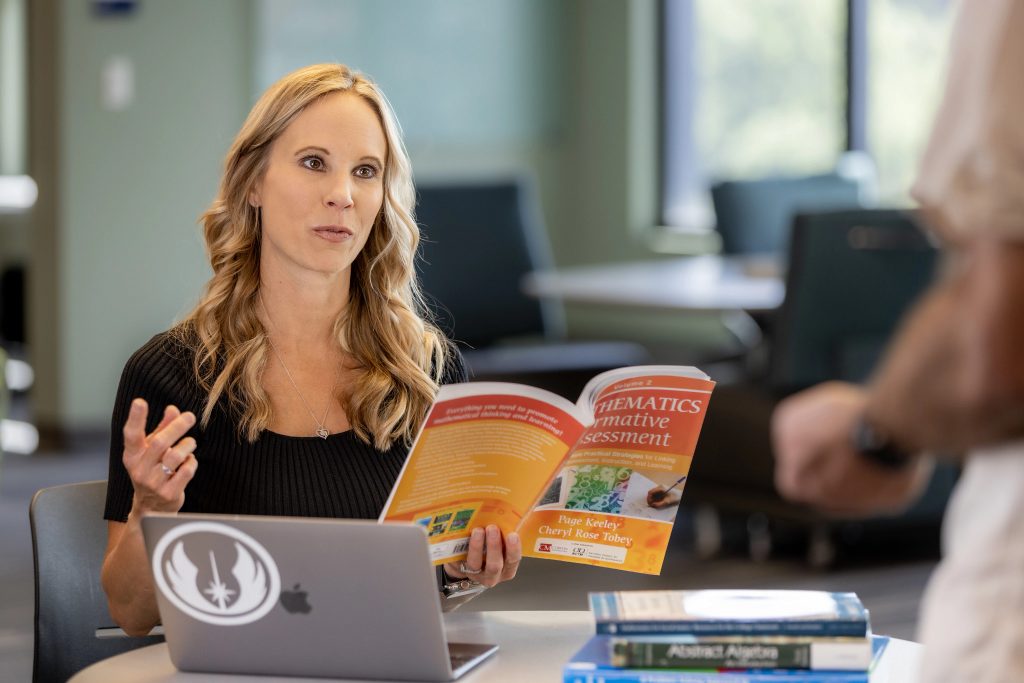
Promoting STEM Education Access: an expanded Noyce Scholars program
The “Promoting STEM Education Access through Scholarships, Engineering Education Microcredentials, and a Community College Partnership” NSF grant expands on NAU’s existing Noyce Scholars program. Hodge-Zickerman is working with Drs. Brian Beaudrie and Shannon Guerrero, co-PIs who are also from NAU’s Department of Mathematics and Statistics; Dr. Jo’el Johanson from the NAUTeach program; and Kenric Kesler from NAU’s Center for Science Teaching and Learning. The team hopes to increase the number of mathematics and science teachers, support them during their first years of teaching, and improve teacher retention through professional development.
The grant will provide scholarships to qualified mathematics and science teacher candidates in their final years of undergraduate study. In return for receiving the award, students commit to teaching mathematics or science in a high-need school, preferably in Arizona. “It’s very hard to encourage people to go into math and science teaching in Arizona; our numbers are really low. We want to encourage people to stay here and go into mathematics and science teaching, and this is an incentive,” says Hodge-Zickerman.
An added component will be an engineering education microcredential offered online at no cost for current or past Noyce scholars. As an incentive, eligible Noyce scholars receive a small stipend to take the courses. To increase diversity in the STEM teaching field, Coconino Community College has a sub-award with NAU. Priority for these scholarships will go to students involved in the CCC2NAU program.
“Both the Noyce scholarship program and the AWSiM grants mean a lot to me personally,” says Hodge-Zickerman. “They help frame my research area in terms of recruiting and retaining underrepresented groups in the STEM fields, especially those requiring a lot of math.”
Throughout her work, Hodge-Zickerman has focused on active learning—getting the students involved in their learning process. Whether she teaches calculus to elementary math teachers or conducts a workshop, she gets her students involved. She understands math can be a struggle—offering tissues and chocolates for challenging problems—but wants people to keep trying. “I feel like that is one of those keys that gives people ownership to feel like, ‘Oh, I can do math,’” she says. “It’s hard for a lot of people, and that’s okay. Keep trying. Don’t give up.”

